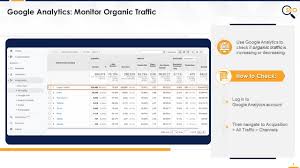Maximising SEO Performance with Next.js: A Guide to Success
SEO with Next.js: Boosting Your Website’s Performance
In the realm of modern web development, having a website that is not only visually appealing but also performs well in search engine results is crucial for success. This is where Next.js, a popular React framework, comes into play. By leveraging the power of Next.js for your website, you can supercharge your SEO efforts and enhance your online visibility.
The Power of Next.js for SEO
Next.js offers a range of features that make it an ideal choice for boosting your website’s SEO performance. Its server-side rendering capabilities help search engine crawlers easily index your content, leading to improved visibility on search engine results pages (SERPs). Additionally, Next.js provides support for dynamic routing, which allows you to create SEO-friendly URLs that are both user-friendly and easily discoverable by search engines.
Optimising Your Website with Next.js
When it comes to SEO optimisation with Next.js, there are several best practices to keep in mind. Firstly, ensure that your website’s metadata, including title tags and meta descriptions, are optimised for relevant keywords. Next.js makes it easy to customise these elements for each page of your site.
Furthermore, utilise Next.js’s built-in support for structured data to mark up your content in a way that search engines understand. By implementing schema.org markup using Next.js components, you can enhance the visibility of your website in rich snippets and other SERP features.
Improving Page Speed and Performance
In addition to its SEO benefits, Next.js can also help improve your website’s overall performance. With features like automatic code splitting and prefetching of linked pages, Next.js ensures that your site loads quickly and provides users with a seamless browsing experience. Search engines like Google consider page speed as a ranking factor, so optimising performance with Next.js can positively impact your SEO efforts.
Final Thoughts
By harnessing the capabilities of Next.js for SEO optimisation, you can take your website’s performance to the next level. Whether you’re looking to improve crawlability, enhance user experience or boost search rankings, incorporating Next.js into your web development toolkit can yield significant benefits. Stay ahead of the competition and maximise your online presence with the powerful combination of SEO and Next.js.
7 Essential SEO Tips for Optimising Your Next.js Website
- Ensure proper meta tags (title, description) for each page.
- Implement structured data to enhance search engine visibility.
- Optimize images by using descriptive filenames and alt text.
- Create SEO-friendly URLs with relevant keywords.
- Improve page loading speed for better user experience and SEO ranking.
- Generate a sitemap.xml file to help search engines index your site efficiently.
- Regularly monitor and analyse website performance using tools like Google Analytics.
Ensure proper meta tags (title, description) for each page.
Ensuring proper meta tags, including title and description, for each page is a crucial tip when it comes to SEO with Next.js. By customising these meta tags for every page on your website, you can provide search engines with valuable information about the content of each page. This not only helps improve your website’s visibility in search engine results but also enhances user experience by displaying relevant and enticing snippets in search listings. With Next.js’s flexibility in managing metadata, optimising meta tags for each page becomes a seamless process, ultimately contributing to a more effective SEO strategy.
Implement structured data to enhance search engine visibility.
Implementing structured data is a key tip for maximising the SEO potential of Next.js websites. By incorporating schema.org markup using Next.js components, you can provide search engines with valuable context about your content. This structured data not only enhances the visibility of your website in search engine results but also increases the likelihood of appearing in rich snippets and other SERP features. By following this best practice, you can improve your website’s search engine visibility and attract more organic traffic to your site.
Optimize images by using descriptive filenames and alt text.
When utilising Next.js for SEO optimisation, a crucial tip is to optimise images by employing descriptive filenames and alt text. By naming images with relevant keywords and providing informative alt text, you not only enhance accessibility for visually impaired users but also provide search engines with valuable context about the content of the image. This practice can improve your website’s overall SEO performance and increase the likelihood of your images appearing in relevant search results, thereby driving more organic traffic to your site.
Create SEO-friendly URLs with relevant keywords.
When utilising Next.js for SEO optimisation, a key tip is to create SEO-friendly URLs that incorporate relevant keywords. By structuring your website’s URLs in a way that reflects the content and includes targeted keywords, you enhance the discoverability of your pages by search engines. Next.js’s dynamic routing capabilities make it easy to customise URLs for each page, ensuring they are both user-friendly and optimised for search engine visibility. Implementing this practice can significantly improve your website’s ranking potential and attract more organic traffic to your site.
Improve page loading speed for better user experience and SEO ranking.
Optimising page loading speed is a crucial aspect of SEO when utilising Next.js. By enhancing the performance of your website and ensuring faster loading times, you not only provide users with a better browsing experience but also improve your SEO ranking. Search engines like Google prioritise fast-loading websites in their rankings, making it essential to focus on improving page speed for both user satisfaction and search engine visibility. With Next.js’s features such as automatic code splitting and prefetching, you can streamline your website’s performance, leading to increased user engagement and higher search engine rankings.
Generate a sitemap.xml file to help search engines index your site efficiently.
To enhance the search engine optimisation (SEO) of your Next.js website, consider generating a sitemap.xml file. This file acts as a roadmap for search engine crawlers, guiding them to all the important pages on your site. By providing a clear and organised structure of your website’s content through a sitemap, you can help search engines index your site efficiently. This, in turn, can improve the visibility of your website in search results and ensure that all relevant pages are properly crawled and indexed.
Regularly monitor and analyse website performance using tools like Google Analytics.
Regularly monitoring and analysing your website’s performance is crucial for effective SEO strategies when utilising Next.js. By leveraging tools such as Google Analytics, you can gain valuable insights into user behaviour, traffic sources, and key performance indicators. This data allows you to make informed decisions to optimise your website for search engines and enhance the overall user experience. Continuous monitoring and analysis help you identify areas for improvement, track the effectiveness of your SEO efforts, and ultimately drive better results in terms of visibility and organic traffic.




